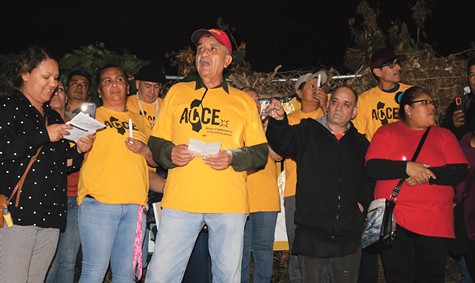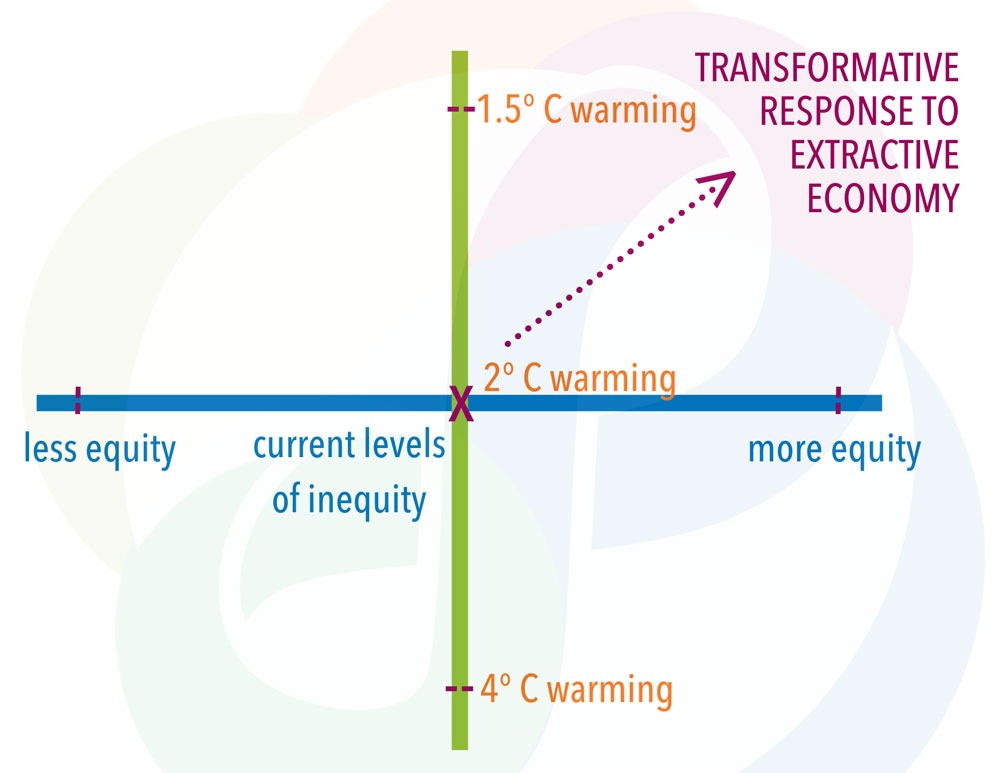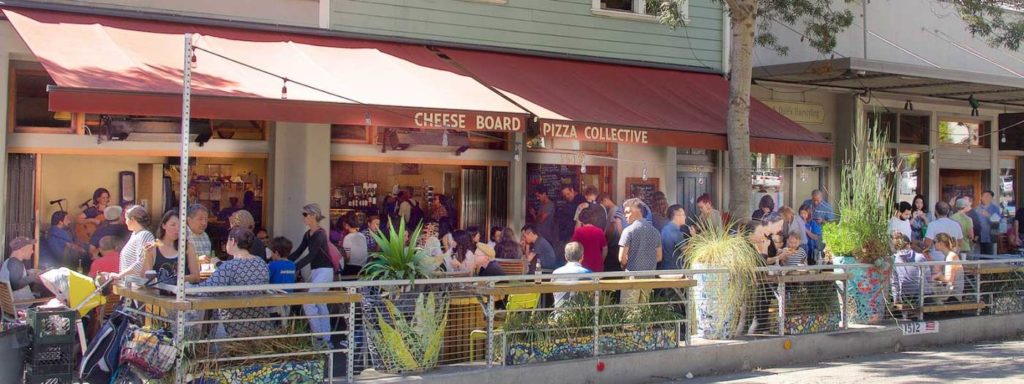Mutual Aid In The Wake Of COVID 19 by Renegade Paradise • A podcast on Anchor
Check out the latest episode of Renegade Paradise from Charleston Democratic Socialists of America, where the Law Center's own Chris Tittle discusses mutual aid, disaster capitalism, and organizing in the South during COVID-19 with Mutual Aid Disaster Relief!
Background: As the COVID 19 global pandemic continues, we discuss the importance of building and participating in mutual aid organizations with a comrade from Mutual Aid Disaster relief. Conversation topics include participating in hurricane relief efforts in Lumberton with Charleston DSA after Hurricane Florence hit in 2018, how climate disaster relief compares to (and has a lot in common with) the COVID 19 pandemic, how different populations are affected by natural and manmade disasters, and how it is critical for the left to get involved with mutual aid projects in order to achieve a broader goal of the complete transformation of our economy and society. Mutual Aid Disaster Relief is a grassroots disaster relief network based on the principles of solidarity, mutual aid, and autonomous direct action. Inspired by similar programs run by the Black Panthers during the 60s, the group encompasses a loosely-connected national network of activists from many different disciplines organizing around supporting survivors of natural disasters.
Listen to the full podcast here.
(Originally released on April 17, 2020.)
The Plague of Worker Expendability with Sabiha Basrai and Ricardo Nuñez
The Plague Podcast with L.M. Bogad

Excerpt: In this episode, we speak with guests Sabiha Basrai and Ricardo Nuñez about the plague of worker expendability in our current economy, and how worker owned-cooperatives are the cure. The coronavirus has only put into starker relief a problem we have always had--that the lives and well-being of many workers are considered disposable by the CEOs and shareholders of their employing corporations. So, how do worker-owned cooperatives give workers shared opportunity, rewarding careers, and the ability to make a living without cutthroat competition with each other? And how, in practical and legal terms, can folks start a cooperative for themselves?
Listen to the full podcast here.
(Originally published on May 13, 2020.)
Now Is the Time to Take Radical Steps Toward Housing Equity
The Law Center's very own Chris Tittle was recently published in YES! magazine, where he proposes new frameworks for social housing. Check out the excerpt below or the full article here!

Excerpt: It’s time to think big about housing. No more evictions and foreclosures. Rent and mortgage cancellation on a grand scale. Twelve million new green housing units in the next 10 years. A massive reinvestment in housing under public control, resident control, and community control. Rent freezes, rent control, tenant protections, and anti-displacement measures across the nation.
Read the full article here.
(Originally published on May 6, 2020.)
Small Businesses Need Help - We need to cancel their rents, too — Inclusive Action for the City
By Erika Hernandez, Inclusiveaction.org

Excerpt: I recently attended a “Protecting and Empowering Commercial Tenants in the Age of Coronavirus” zoom workshop hosted by the Sustainable Economies Law Center and the Lawyers’ Committee for Civil Rights of the San Francisco Bay Area. Moderators gave guidance about what commercial tenants should say when writing to their landlords. For example, tenants should explicitly mention:
-
COVID-19;
-
Governor Newsom’s business closure order;
-
How their businesses have been impacted by COVID-19;
-
Why this impact has prevented them from being able to pay their rent in full; and
-
Their plans to re-open their businesses as soon as possible.
The workshop also included different strategies for negotiating rent payments, like postponing rent due, reducing rent payments for a period, or offering to give landlords a percentage of net revenue after expenses. More notably and in true “not me, us” fashion, however, were the reminders of our interdependence. Business owners who rent from small landlords were encouraged to empathize with their landlord’s financial struggles and express their willingness to advocate for a mortgage freeze.
Read the full article here.
(Originally published May 4, 2020.)
A Different Relationship With Housing
By Jean Tepperman of East Bay Express

Image credit: Alliance of Californians for Community Empowerment (ACCE), a grassroots tenants' rights organization
Excerpt: A growing network of support for land trusts and housing cooperatives operates in the background [of this effort to rethink affordable housing]. The Sustainable Economies Law Center has long provided legal help and policy advocacy for collective economic activities and will soon launch a Radical Real Estate Law School to train lawyers to work with these projects. The California Community Land Trust Network shares resources and promotes favorable state policies. At the grassroots level, the People of Color Sustainable Housing Network connects community activists working in many of these projects. It also partners with the Sustainable Economies Law Center to deliver a training program to equip low-income residents to launch their own projects.
Read the full article here.
(Originally published March 4, 2020.)
Should Berkeley tenants get first dibs on buying their landlord’s property?
By Natalie Orenstein of Berkeleyside

The Law Center's Jay Cumberland, second from the left, congregate alongside supporters and opponents of Berkeley’s Tenant Opportunity to Purchase Act (TOPA) outside a City Council policy committee meeting Thursday, March 5, 2020. Image credit: Natalie Orenstein
Excerpt: Under TOPA, authored by Mayor Jesse Arreguín, landlords who wanted to sell their rental property would have to give their tenants the first right of refusal to buy it, at a price named by the owner. The tenants can assign their rights to a city-approved affordable housing organization — like a land trust — if they couldn’t afford the cost themselves. If the tenants decided to move out instead of buying the building, those housing organizations would get second dibs.
Read the full article here.
(Originally published on March 6, 2020.)
Rethinking Our Climate Vision: Beyond Pass/Fail
Subin Devar, the Law Center's Director of Community Renewable Energy, penned this essay, Are You Thinking About Climate Change Wrong?, as part of our membership campaign in January 2020. It was recently republished in Nonprofit Quarterly.

Everyday people, at least in the US, are more concerned and more pessimistic about climate change. Perhaps this is because of diminishing trust in government or the sheer scale of the problem. From my experience, people who work on climate, energy, or social justice issues are a bit more hopeful than others, even if they are weighed down at times by worry. It appears that people around the globe are a little more optimistic that we can avoid the worst effects of climate change. But is that enough? Avoiding the worst effects?
In this context, a pass/fail framing of climate change has two key problems.
Read the article on Nonprofit Quarterly here, or the original post on the Law Center's blog here.
Report: Designing Community Solar Programs That Promote Racial & Economic Equity
The Law Center's Director of Community Renewable Energy, Subin Devar, contributed to this white paper which provides guidance for creating community solar programs that promote racial and economic equity.

SUMMARY: This paper is intended for city elected officials and policymakers, administrators of municipal electric utilities (i.e., munis), and local advocates building equitable third-party or muni-owned community solar programs. It is most applicable to municipalities with a municipal electric utility or other lever that provides flexibility in sourcing energy, such as a Community Choice Aggregation entity. Much of this paper is relevant for policy makers and advocates designing regional or state-level community solar programs, as well.
Read the full report here.
An Enormous Land Transition is Underway. Here’s How to Make it Just.
Neil Thapar, the Law Center's Director of Food and Farms, penned this essay, How to Win Land Justice in a Decade, as part of our Land Justice campaign in January 2020. It was recently republished in Civil Eats.

Excerpt: In the next decade, we can rewrite the story of our collective future—one that manifests indigenous sovereignty, reparations, and a livable climate. Winning land is a precondition not only for a racially equitable food and farm economy, but for a real, thriving, and inclusive democracy. And, true to the definition of democracy, we all have a role to play.
Read the full article on Civil Eats here, or the full, original version on the Law Center's blog here.
Berkeley Revises Loan Requirements to Help Finance Employee Ownership
By Karen Khan of Fifty by Fifty

The Cheese Board Collective, in Berkeley, CA, has been owned by its workers since 1971.
Excerpt: For worker cooperatives, one of the barriers to growth is access to capital. Small business loans usually require the business owner to offer what is known as a “personal guarantee”—i.e., if the business fails to pay off a loan, the owner is on the hook to pay it back. Without a lone owner to guarantee the loan, lenders have been wary of lending to cooperatives, where multiple people own the business. To help grow local cooperatives, Berkeley, CA, is changing the rules.
Berkeley established a small business loan fund with a $500,000 grant from the U.S. Department of Commerce Economic Development Administration in 1987, writes Oscar Perry Abello in Next City. The fund has been used to support minority-owned and women-owned businesses denied traditional loans, but because of the personal loan guarantee, loans to cooperatives have been exceedingly rare.
Read the full article here.
(Originally published on November 19, 2019.)





